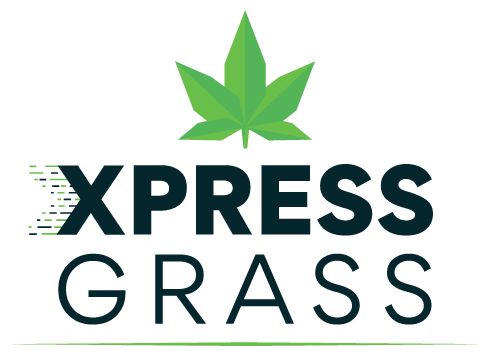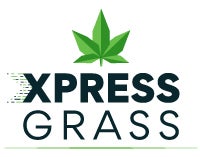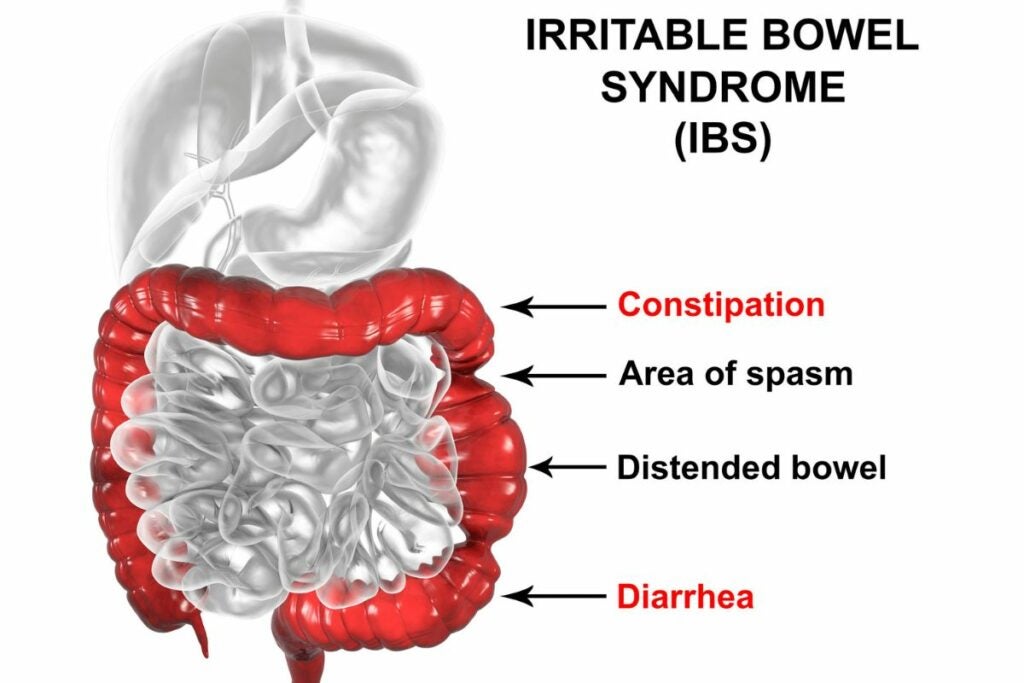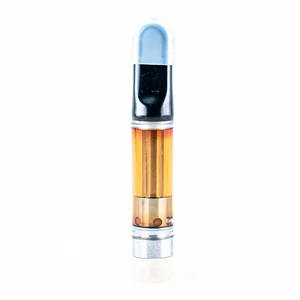Table of Contents
- Understanding CBD: An Introduction
- The Science Behind CBD and IBS
- How CBD Interacts with the Endocannabinoid System
- CBD vs. Conventional Treatments for IBS
- Choosing the Right CBD Product for IBS
- Understanding CBD Dosage for IBS
- Safety and Side Effects of CBD
- Legal Considerations of CBD for IBS
- Conclusion
- FAQs About CBD and IBS
Looking for natural relief from IBS symptoms? Discover the potential of CBD for IBS! In this guide, we’ll delve into the benefits and dosage guidelines of CBD, shedding light on how it may provide much-needed comfort and support for those with irritable bowel syndrome. Get ready to explore the exciting world of CBD and its potential to transform your IBS management journey.
Understanding CBD: An Introduction
Research suggests that CBD may offer potential benefits in managing IBS symptoms. While the exact mechanisms are still being studied, several pathways have been proposed to explain how CBD exerts its effects.
One of the primary ways CBD may alleviate pain and inflammation associated with IBS is by interacting with the endocannabinoid system (ECS) in the human body. The ECS plays a crucial role in regulating various physiological processes, including pain perception, immune response, and gut function. By engaging with cannabinoid receptors in the ECS, CBD may help restore balance and alleviate discomfort in individuals with IBS.
Moreover, CBD has been found to possess anti-inflammatory properties, which could be particularly beneficial for IBS sufferers. Chronic inflammation in the gastrointestinal tract is a key factor contributing to the development and persistence of IBS symptoms. By reducing inflammation, CBD may help alleviate pain, bloating, and other discomfort associated with the condition.
The Science Behind CBD and IBS
Numerous studies and research findings have shed light on the potential effectiveness of CBD in managing IBS symptoms. While further research is still needed, the existing evidence is promising.
A study published in the European Journal of Pain investigated the impact of CBD on patients with gastrointestinal disorders, including IBS. The results showed that CBD significantly reduced pain and improved the overall quality of life in the participants.
Another study published in the journal Cannabis and Cannabinoid Research explored the use of CBD-rich cannabis extracts in patients with IBS. The findings indicated a reduction in pain severity and an improvement in gastrointestinal symptoms, suggesting the therapeutic potential of CBD for IBS management.
Additionally, anecdotal evidence from individuals who have incorporated CBD into their IBS treatment regimen is encouraging. Many report experiencing a reduction in symptoms such as abdominal pain, bloating, and irregular bowel movements. While personal experiences may vary, these accounts contribute to the growing body of evidence supporting the potential of CBD as a natural remedy for IBS.
In conclusion, CBD shows promise as a natural option for managing IBS symptoms. Its interaction with the endocannabinoid system, anti-inflammatory properties, and positive findings from studies highlight its potential benefits. However, it’s crucial to consult with a healthcare professional before incorporating CBD into your IBS treatment plan, as individual responses and optimal dosages may vary. With ongoing research and growing interest in CBD, the future may hold even more insights into its role in alleviating the burdens of IBS and improving the lives of those affected.
Research Findings and Effectiveness of CBD for IBS
The endocannabinoid system (ECS) is a complex network of receptors, enzymes, and endocannabinoids that plays a vital role in maintaining balance and harmony within the body. It regulates various physiological processes, including pain perception, immune response, mood, and gut function.
When it comes to CBD and its potential for relieving IBS symptoms, the interaction with the endocannabinoid system is key. CBD interacts with the ECS in a multifaceted manner, influencing its functioning and potentially providing therapeutic effects.
Firstly, CBD is known to inhibit the enzyme responsible for breaking down anandamide, an endocannabinoid that binds to cannabinoid receptors in the ECS. By inhibiting this enzyme, CBD allows anandamide to persist in the body for a longer duration, leading to increased activation of cannabinoid receptors. This increased activation may help regulate pain perception and modulate the immune response, potentially contributing to the relief of IBS symptoms.
Secondly, CBD has been shown to interact with other receptors in the ECS, such as the serotonin 5-HT1A receptor. Serotonin plays a crucial role in gut function, and abnormalities in its signalling have been implicated in IBS. By interacting with the 5-HT1A receptor, CBD may help regulate serotonin levels, promoting better gut motility and reducing symptoms such as diarrhea and constipation.
While the exact mechanisms through which CBD interacts with the endocannabinoid system are still being elucidated, these interactions demonstrate the potential of CBD in modulating the ECS and addressing IBS symptoms at their root.
How CBD Interacts with the Endocannabinoid System
When comparing CBD to conventional treatments for IBS, it’s important to weigh the potential benefits and drawbacks of each approach. Conventional treatments for IBS typically involve a combination of dietary modifications, medications, and lifestyle changes.
Conventional treatments may offer symptomatic relief for some individuals with IBS. However, they often come with limitations and challenges. Medications targeting specific symptoms, such as antispasmodics or laxatives, may provide temporary relief but fail to address the underlying causes of IBS. Additionally, some medications can cause side effects, and their long-term use may not be sustainable or desirable for everyone.
CBD, on the other hand, presents an alternative that is natural and generally well-tolerated. It has shown promise in addressing various symptoms of IBS, including pain, inflammation, and disrupted gut motility. CBD’s interaction with the endocannabinoid system, which plays a key role in gut function, may offer a more holistic approach to managing IBS symptoms.
Furthermore, conventional treatments often focus on symptom management alone, while CBD has the potential to address multiple aspects of IBS. Its anti-inflammatory properties may help reduce gut inflammation, while its analgesic effects may alleviate pain. CBD’s anxiolytic properties may also benefit individuals with IBS who experience stress and anxiety, which can exacerbate symptoms.
It’s worth noting that while CBD shows promise, it is not a cure for IBS, and individual responses may vary. However, as a complementary approach, CBD has the potential to enhance the effectiveness of conventional treatments and improve overall symptom management for those with IBS.
CBD vs. Conventional Treatments for IBS
Selecting the right CBD product for IBS management is crucial to ensure safety, efficacy, and optimal results. With a wide range of CBD products available, here are some factors to consider when making your choice:
Product Quality:
Look for CBD products derived from organically grown hemp. Organic cultivation reduces the risk of exposure to harmful chemicals and ensures a higher-quality product.
Third-Party Testing and Accurate Labeling:
Choose CBD products that undergo third-party testing. This ensures that an independent laboratory has verified the product’s potency and purity. Look for products that provide a Certificate of Analysis (COA) from a reputable laboratory. The COA should detail the cannabinoid profile, confirming the CBD content and the absence of contaminants like pesticides, heavy metals, and residual solvents. Accurate labelling is also important, as it allows you to determine the CBD concentration per serving and ensures transparency from the manufacturer.
CBD Spectrum and Potency:
Consider the CBD spectrum when selecting a product. Full-spectrum CBD contains not only CBD but also other beneficial compounds found in the hemp plant, including other cannabinoids, terpenes, and flavonoids. This combination of compounds may work synergistically, potentially enhancing the therapeutic effects. Broad-spectrum CBD contains these compounds as well, but without any detectable THC, making it a suitable option for those who want to avoid THC altogether. CBD isolate, on the other hand, contains only CBD and no other compounds. The potency of the CBD product is also important, as it determines the concentration of CBD per serving. Start with lower potencies and gradually increase as needed.
Delivery Method and Bioavailability:
Consider the delivery method that best suits your needs. CBD is available in various forms, including oils, capsules, edibles, topicals, and more. Each delivery method has its advantages and disadvantages. For example, oils and tinctures offer sublingual absorption, providing faster effects, while edibles offer a convenient and discreet option. Topicals may be beneficial for targeting localized symptoms. Additionally, consider the bioavailability of the chosen product. Bioavailability refers to the amount of CBD that enters the bloodstream and is available for the body to use. Sublingual methods generally have higher bioavailability compared to oral consumption.
Reputable Brands and Reviews:
Choose CBD products from reputable brands that prioritize quality, transparency, and customer satisfaction. Look for brands with positive customer reviews and a track record of providing high-quality CBD products. Take the time to research the brand’s sourcing methods, manufacturing processes, and commitment to safety and transparency.
Remember, CBD affects everyone differently, so it may require some trial and error to find the right product and dosage that works best for your individual needs. It’s advisable to consult with a healthcare professional before incorporating CBD into your IBS management plan, especially if you are currently taking any medications or have underlying health conditions.
By considering these factors and making an informed choice, you can increase the likelihood of finding a reputable CBD product that may offer relief and support in managing your IBS symptoms.
Choosing the Right CBD Product for IBS
Establishing standardized dosage guidelines for CBD in managing IBS is challenging due to various factors. CBD is still undergoing extensive research, and individual responses can vary significantly. As a result, there are no universally accepted dosage recommendations specifically tailored for IBS.
Personalized dosing is essential when using CBD for IBS. Factors such as body weight, metabolism, the severity of symptoms, and individual sensitivity to CBD can influence the optimal dosage. Consulting with a healthcare professional experienced in CBD use is highly recommended to determine the most suitable dosage for your specific needs.
When starting CBD, it is advisable, to begin with a low dosage and gradually increase it over time. This approach allows you to assess your body’s response and find the minimum effective dose. It is essential to be patient and give your body time to adjust. Keep a record of your symptoms and any changes you experience with different dosages to help guide your journey.
While there are no specific dosage recommendations for IBS, a general starting point is typically 10-20 mg of CBD per day. This can be divided into multiple doses throughout the day. If necessary, the dosage can be increased incrementally every week or two until the desired effects are achieved. However, it’s crucial to remain within a comfortable range and avoid excessive dosages.
Remember, CBD affects each person differently, and finding the optimal dosage may require some experimentation. Regular communication with a healthcare professional will ensure that you are on the right track and receiving the most appropriate guidance for your unique situation.
Understanding CBD Dosage for IBS
CBD is generally well-tolerated by most individuals. It has a favourable safety profile and is considered non-addictive. However, it’s important to be aware of potential side effects that may occur, albeit infrequently.
Common side effects of CBD may include dry mouth, drowsiness, and changes in appetite. These effects are typically mild and transient. Adjusting the dosage or the time of administration can often alleviate them. It’s important to note that individual sensitivity to CBD can vary, and some individuals may experience no side effects at all.
It’s crucial to discuss your intention to use CBD with a healthcare professional, especially if you are currently taking other medications. CBD has the potential to interact with certain medications, particularly those metabolized by the liver’s cytochrome P450 enzymes. Your healthcare professional can evaluate potential drug interactions and provide guidance on the safe use of CBD alongside other medications.
While CBD is generally safe, it’s always recommended to choose high-quality CBD products from reputable brands. This ensures that you are consuming CBD free from contaminants and unwanted additives. Adhering to the recommended dosage and using CBD responsibly further enhances safety.
Legal Considerations of CBD for IBS
In Canada, the legal landscape surrounding CBD can be nuanced. CBD derived from hemp, which contains less than 0.3% THC, is legal and regulated under the Cannabis Act. This means that hemp-derived CBD products can be produced and sold across the country. However, it’s important to note that specific regulations and restrictions may still apply at the provincial or territorial level.
Differentiating between hemp-derived CBD and marijuana-derived CBD is crucial in Canada as well. Marijuana-derived CBD, derived from cannabis plants with higher THC content, may have stricter regulations or even be prohibited in certain regions.
To ensure compliance with Canadian laws, it’s vital to familiarize yourself with the legal status of CBD in your specific province or territory. Stay informed about local regulations and consult with a legal professional if needed.
By understanding the legal requirements and staying informed, you can confidently navigate the use of CBD for managing IBS symptoms within the boundaries of Canadian law.
Conclusion
To enhance your IBS management journey, consider exploring the high-quality CBD products offered by XpressGrass. With their wide range of CBD options, including oils, tinctures, and edibles, XpressGrass provides a reliable source for obtaining CBD products that align with your needs. Visit their website to discover the possibilities and take a step towards a more balanced and holistic approach to managing your IBS symptoms.
FAQs About CBD and IBS
Q: Is CBD legal for managing IBS symptoms?
Q: How does CBD work to alleviate IBS symptoms?
Q: Where can I find reputable CBD products for managing my IBS?
Q: Can CBD interact with other medications I’m taking for my IBS?
Q: Are there any side effects of using CBD for IBS?
Q: Can CBD completely cure IBS?






